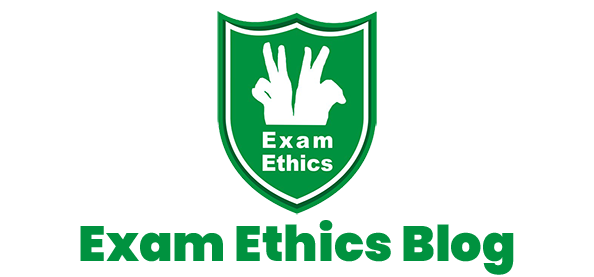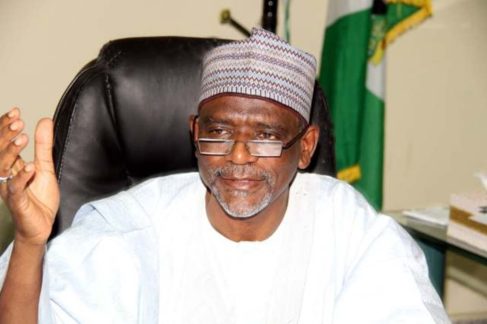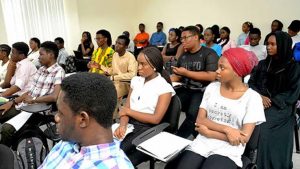This news was culled from The PUNCH Newspaper’s publication of 25th August 2022
The United Nations, on Thursday, urged the Federal Government to increase its current budgetary allocation to the education sector from seven to 20 per cent in order to achieve the Sustainable Development Goal 4—universal, inclusive and equitable basic education for all school-age children by 2030.
The United Nations Resident and Humanitarian Coordinator in Nigeria, Mathias Schmale, sounded the warning at the official launch of the Reports of Independent Evaluation of Sustainable Development Goals three and four by Vice President Yemi Osinbajo, at the State House Banquet Hall, Abuja.
Schmale who described both reports as the first of their kinds in Sub-Saharan Africa, said they indicate Nigeria’s determination to establish robust institutional monitoring and support frameworks at national and sub-national levels.
He said, “While the findings of these evaluations show some improving health and education outcomes in Nigeria, the reports also contain some worrying analyses.
“In relation to SDG-4 on quality education, it is, for example, concerning to note that Nigeria is unlikely to achieve the global agenda for universal inclusive and equitable basic education for all school-age children by 2030 if the current very low public investment in the education sector remains the same.
“The evaluation indicates that the right policies (especially around free basic education and gender) are in place but an increase in quality and access to education is critical. In the 2022 budget, there was an increase to 7 per cent on education but the evaluation says it will need to increase to 20 per cent with clear accountabilities on delivery.
“Similarly, government resources for health financing are inadequate for the achievement of SDG-3 targets related to good health and well-being. It is good to see that the recommendation of revitalizing the Primary Health Care has already started and its effectiveness will be enhanced with a clear plan and accountability on human resources and financing at state level.”
According to the UN Coordinator, business as usual is no longer sufficient to deliver the goals.
He, therefore, pledged the UN’s support to the Federal Government in this regard saying “We are keen to identify truly transformative initiatives that will catalyse tangible change in the lives and livelihoods of the Nigerian people. This new data will help determine which health and education programmes are really moving the needle. We can then look to expand, renew, and replicate them.”
Delivering his keynote address, Vice President Osinbajo said the Federal Government will leverage existing institutional framework to promote stronger partnerships and synergies among stakeholders to achieve the SDGs.
He also declared that it is crucial to build the requisite commitment and incentive to prioritise and increase basic educational financing up to 12 per cent at all levels.
Related News
Old boys association decries poor budgetary allocation to education
Expert laments declining education budget
Education budget’ll rise by 50% in two years – Buhari
“The timing of the use of appropriated funds is also important. State governments should take advantage of the UBEC matching grants by making the required contributions.
“Educational stakeholders are encouraged to develop and strengthen coordination mechanisms that can help tighten the collaboration with information sharing between federal and the state on the one hand, and non-state actors on the other hand,” he said.
He noted that achieving inclusive sustainable development is in tandem with the Buhari regime’s desire to lift 100 million Nigerians out of poverty in 10 years.
This, he said, explains why the FG established several programs to support the acceleration of the achievement of the SDGs.
The VP also noted that the findings of the evaluations reinforce the evidence for improving health and educational outcomes in Nigeria.
He promised that the FG will keep promoting strong partnerships and facilities amongst its ministries, departments and agencies, and between development departments for coordinated implementation for SDGs in Nigeria.
In her opening address earlier, the Senior Special Assistant to the President on SDGs, Adejoke Orelope-Adefulire, noted that periodic evaluation is necessary to implement the SDGs effectively.
She described the two reports as products of a series of efforts led by her office in close collaboration with the Federal Ministries of Finance, Budget and National Planning, Health and Education, with the support of the United Nations Children Fund in Nigeria.
“The findings of this strategic evaluation support further evidence for improving the rights of children to education in Nigeria and how the Government at all levels, along with development partners and civil society, can best address systemic gaps and challenges, including the negative effects of the ongoing COVID-19 pandemic, to progress on our shared commitment to the 2030 Agenda for sustainable development,” she said.
Also speaking virtually, the UN Deputy Secretary-General, Amina Mohammed, described the reports as “timely” saying “I encourage you all to swiftly turn these recommendations into actionable levels so that we can accelerate our implementation of the 2030 agenda.”








